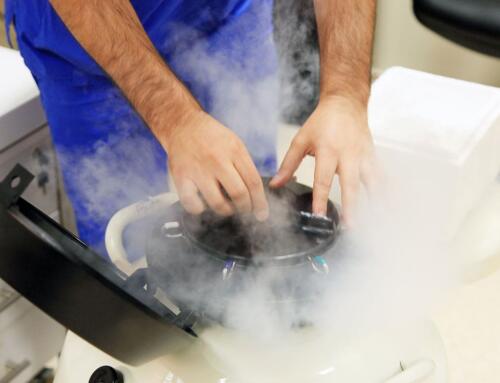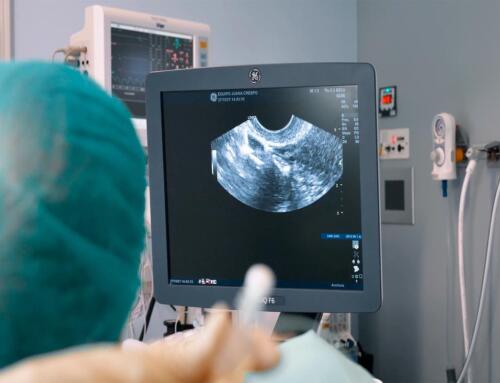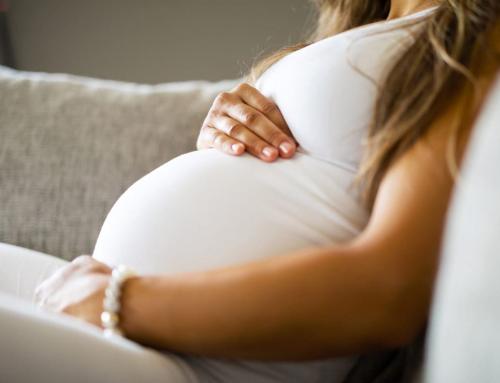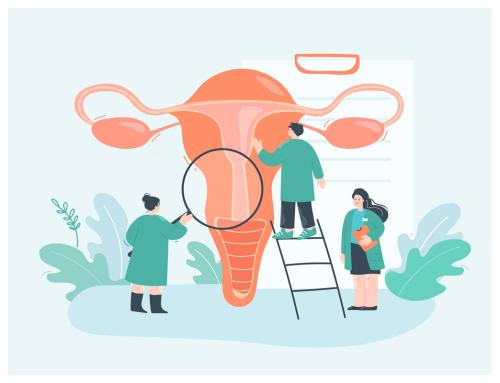Why don’t your embryos implant if they are of good quality? Or why do they implant but then you suddenly have a miscarriage?
Answering these questions is a great challenge, as it depends on three patients: the woman, the man and the embryo. And although failure to implant and repeated miscarriage are not the same, they both involve a failure in achieving a viable pregnancy and, in both cases, it is necessary to make a multidisciplinary study to find out the reasons and solve them.
In reproductive medicine, we consider that there is an implantation failure when a pregnancy is not achieved after 3 good quality embryo transfers. In the case of repeated abortions, it is considered as such when a woman has suffered a spontaneous loss of two or more consecutive pregnancies before the 20th week of gestation.
There is always a cause
Suffering implantation failures or repeated miscarriages does not necessarily mean your dreams of becoming a mother have to end.
Today, science and technology allow us to diagnose and treat most of the causes regarding repeated miscarriages and embryo implantation failures.
Knowing the cause of your infertility is essential for a successful IVF treatment. In order to discover these causes we must start by studying the reason for previous failures. Why? Because at Juana Crespo, we believe that sterility always has at least one cause.
The study of unsuccessful attempts: looking for the causes of implantation failures and repeated miscarriages
The first thing we need to do is to find out what has gone wrong so far. To do this, we need to hear your story:
- We will make a previous study of your and your partner’s background.
- We will study your medical history.
- We will analyse each of the previous treatments you have had in other centres (if there had been any).
- We will assess the information provided by your clinical tests.
- And, finally, we will carry out a physical and ultrasound scan.
All this will help us find the reason for your infertility. And once we have a personalised diagnosis, we will then create a treatment strategy tailored to your specific case.

Other diagnostic methods you may need
Sometimes, depending on the anamnesis and your gynaecologist’s suspicions regarding your infertility causes, it may be necessary to make other complementary studies:
- Anatomical and endometrial study
In addition to discarding the presence of endometriosis, the study of the uterine cavity is essential to detect small anatomical alterations in the uterus or tubes. These may be pathologies that have gone unnoticed until now, such as hydrosalpinx, small uterine polyps, adenomyosis or a poor quality endometrium. For this purpose, hysterosalpingogram, hysteroscopy or even magnetic resonance imaging are tests that can provide us with a great deal of information.
- Study of male factors
In addition to the seminogram, which is the most common semen analysis, there are many other tests, for example, a karyotype study. This test examines the characteristics of the chromosomes to rule out possible alterations, FISH in sperm or the study of meiosis obtained after a testicular biopsy.
- Genetic study
The genetic study of the couple may be indicated in these types of complex cases and, if there is any alteration, a pre-implantation Genetic Diagnosis could be carried out
Contrary to what is often believed, PGD or PGT (Pre-implantation Genetic Test), despite requiring a cell sample by means of an embryo biopsy, when done correctly, it does not reduce the capacity of the embryo to implant well.
- Study of autoimmune factors
The presence of biochemical signs may lead us to suspect antiphospholipid syndrome or mutations in coagulation factors. If this is the case, it is possible to design specific treatments aimed at compensating for these deficiencies and, therefore, improve the environment for the embryo to be lodged in the uterus.
We can also study the Natural Killer cells in peripheral blood and endometrium to detect whether there is immune hyperreactivity that prevents the embryo from implanting.
- Endocrinological study
Sometimes, metabolic disorders, such as diabetes, hypercholesterolemia, hypertension, thyroid problems and body weight alterations, can limit the reproductive capacity, reducing embryo implantation and increasing the risk of miscarriage. In these cases, personalised nutritional advice can help to optimise the results of the transfer.
- Embryo study
Most embryo implantation failures and repeated miscarriages are due to a chromosomal alteration in the embryo. After all, the embryo comes from the combination of two reproductive cells, the sperm and the oocyte, and it is possible that alterations occur at the time of the formation of the embryo.
Therefore, the most important thing is to achieve a chromosomally normal embryo transfer, as this drastically reduces the risk of miscarriage, even in those patients who are older.
Available treatments to reduce implantation failures and repeated miscarriages
Fortunately, nowadays, there are solutions that allow us to increase the probabilities of embryo implantation and their subsequent evolution in pregnancy:
1 – The embryo biopsy, carried out around the fifth day of embryonic development, can help us select embryos free of chromosomal alterations and thus prevent genetic and hereditary diseases such as Down’s syndrome or some types of cancer. In future articles we will talk in more detail about this technique and how we do it at Juana Crespo clinic.

2 – In our laboratory we can improve the culture conditions in special incubators to provide the embryo with optimum nutrition that will allow it to develop correctly.
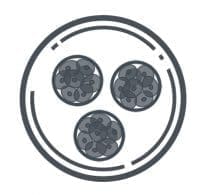
3 – It is also advisable to make the transfer when the embryos have reached the blastocyst stage, i.e. the 5th day after fertilisation. This way, we can see how it has been evolving and select the best embryos with the greatest capacity for implantation.

4 – In cases of high complexity, it may also be necessary to perform a surgical intervention. At Equipo Juana Crespo we have one of the most experienced surgery units in reproductive medicine, which allows us to perform minimally invasive interventions. Therefore, in cases such as, for example, severe polyps, adenomyosis, etc. surgery allows us to repair the fertility of the affected organs and thus give you back the opportunity to become a mother.

5 – Another option that should be studied very carefully is assisted hatching, which allows the outer layer of the embryo to be opened up to allow its exit to the outside world so that it can adhere to the mother’s endometrium, and facilitate implantation.
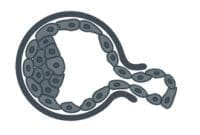
6 – Deferred transfer, i.e. freezing all the embryos for subsequent transfer in another spontaneous cycle or with the help of pharmacology. This way, the transfer is made to a much more receptive endometrium.

7 – We also have drugs to improve thyroid function, control diabetes, reduce cholesterol, reduce immune rejection, as well as heparin to reduce the formation of blood clots, etc.

Customized solutions available for you
At Equipo Juana Crespo we are specialists in the most complex cases of infertility, including repeated miscarriages and embryo implantation failures. We have the best success rates in the sector in cases of high complexity by embryo transfer after a single attempt.
We value each and every one of the causes and circumstances of your specific case. We do not carry out treatments based on standardised protocols, but rather we create a process tailored to you to solve and resolve this distressing problem.
If you have experienced implantation failures or repeated abortions, but would like to give yourself a new opportunity with a team specialised in highly complex cases, call us at 961 042 557. You can also write to us at info@juanacrespo.es and you will be able to book your first visit.




